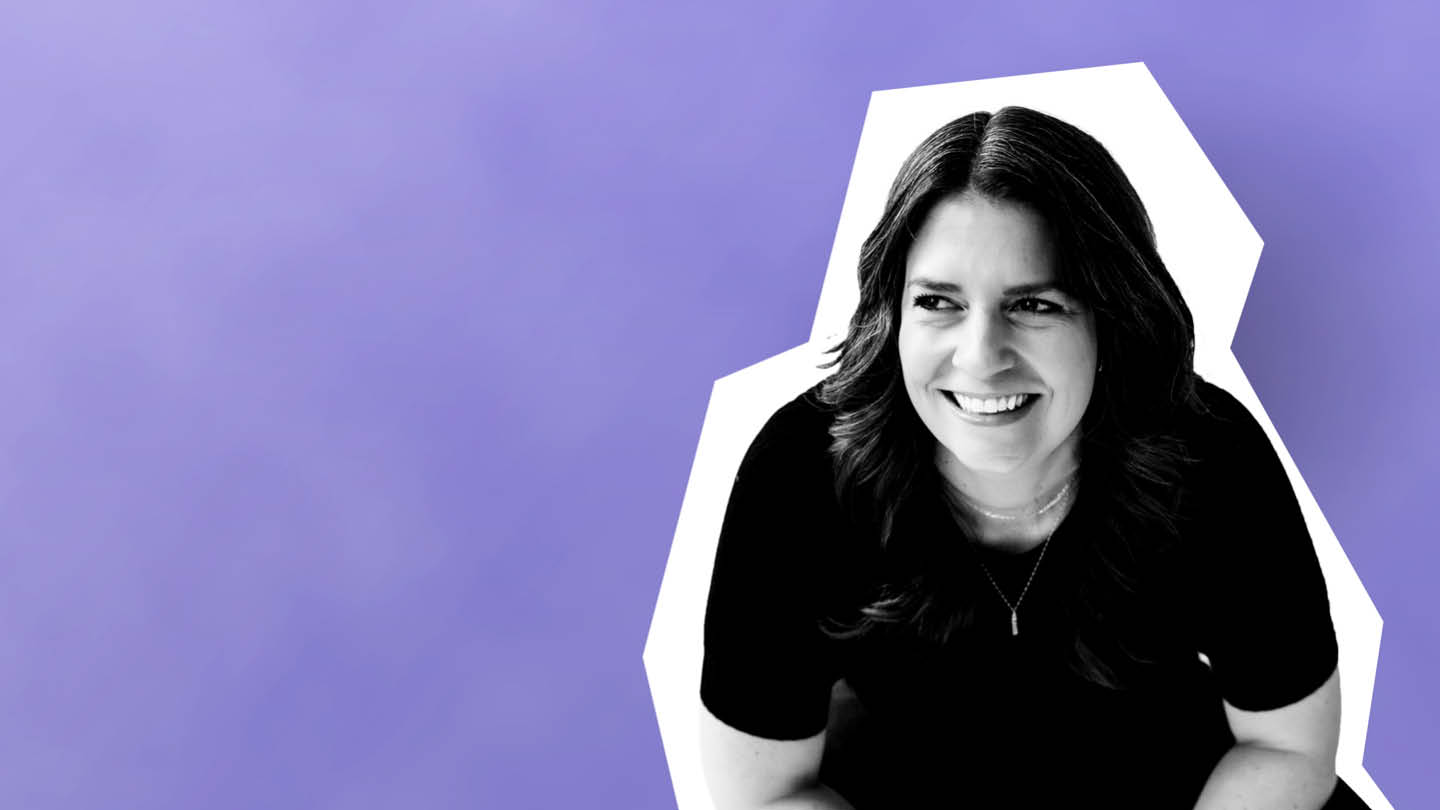A decade ago, if you saw a shivering Gabrielle Dalvet on Boston’s Charles River Esplanade handing out water bottles to marathon runners, just know you saw her at peak perma-hustling millennial mode.
“If you’re a millennial who had to find a job after the 2008 financial crisis, you hustled in every direction you could,” Gabrielle explains, “just to make a dent. I participated in any event anytime someone asked for help. I’d hand out water for hours just to make myself known.”
Back then, Gabrielle worked for New Balance in customer service, but she quickly moved on to a marketing coordinator role, which kicked off her career. In true millennial style, she eventually left New Balance because it was a bit “too comfortable,” moving to a smaller sports lifestyle brand. Later, she jumped into startup waters and tried her hand at brand marketing before moving into the B2B SaaS space.
As she moves forward, Gabrielle remains informed by her early experiences. After all, New Balance is the whole reason she got started in marketing to begin with. “New Balance has a great mentoring program,” Gabrielle recalls. “I was paired with a wonderful woman who really helped me explore possible career tracks. I quickly realized I wanted to get into marketing after speaking with the people she introduced me to.”
This level of mentorship, guidance and community support is something Gabrielle strives to replicate in her work today as Principal Consultant at Coterie Mktg and Co-Founder of MKTG WMN.
The Birth of MKTG WMN
Right before the pandemic, Gabrielle met Natalie Cantave, another Boston-based marketer, at a community event for young women in digital marketing. Gabrielle and Natalie loved community environments and the support and education they received as members — however, they were aging out of being “young” women in the field. Gabrielle’s other favorite community was focused on sports marketers, a title she no longer held.
“We realized the options were limited,” Gabrielle recalls. “They were either too broad, like Tech Ladies — which is a wonderful community, but I selfishly only wanted to be with marketers. Or the groups were too niche. Like Product Marketing Alliance, which I love, but I’m not a product marketer all of the time. I’m more of a marketing generalist.”
Both Gabrielle and Natalie longed for a space just for women and non-binary marketers. After realizing nothing like that existed, they decided to start MKTG WMN. The goal was to break silos and create an industry- and specialty-agnostic space where marketers could grow together.
MKTG WMN officially launched in March 2021 via Slack with a free model (today, it costs $15 per month to join, but the programming has scaled accordingly). In the early days, Gabrielle and Natalie watched the community organically take shape, noting what members were talking and asking about. Today, through events like its annual summit, MKTG WMN aims to connect members to the resources they need to be confident, happy and successful at work while ensuring they’re paid what they’re worth.
You Can’t Overcome Imposter Syndrome in a Vacuum
One thing Gabrielle sees over and over in the group is a pervasive epidemic of imposter syndrome.
Marketing is a women-dominant field, but women still get paid 16.5% less than their male counterparts, on average. One KPMG study found that 75% of female executives — a vast majority — have experienced imposter syndrome at work. These women have successfully secured leadership positions and still struggle with not feeling qualified!
“There’s no shortage of women in marketing,” Gabrielle emphasizes. “The problem is that once you get to the top, it’s a lot of guys. I’ve worked for a couple of smart men, but all too often, women in marketing are forced to handle things that aren’t tied to revenue or to be the scapegoat for men-led brand mishaps.”
As a result, many of the offerings in MKTG WMN focus on validating member skill sets and teaching folks how to ask for raises and promotions. She and Natalie share salary benchmark reports and offer a coach-in-residence Slack channel so that people can analyze where they’re at professionally and get advice on building confidence and pushing forward.
If you want to overcome imposter syndrome, Gabrielle recommends first talking to your peers. Find someone in the same role at a different organization, and ask if they’d be willing to have an honest convo with you about their job responsibilities, career trajectory and salary.
Talking to both men and women is ideal since we know the pay gap exists. Finding out that men with your title make 20% more than you do can be a strong impetus to ask for a raise or look for a new role.
You might also feel validated by just having those conversations with others. It’s hard to fully see yourself on your own, but other people can reflect your abilities back to you.
“In some cases, after talking with others, I’m like, ‘I could do that job,'” Gabrielle shares. “A lot of people flounder and can’t arrive at themselves internally when they’re in the vacuum of one organization, but when you validate yourself externally, all of a sudden, things start unlocking. Confidence starts building, and you start to realize you can do the things you want to do.”






